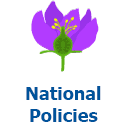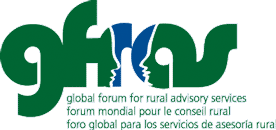 Every country has developed, formulated, and decreed national policies related to rural advisory services. Find some examples here. If you are looking for a national policy from a specific country, please use the search function, selecting the category “National policies” and the tag for the country.
Every country has developed, formulated, and decreed national policies related to rural advisory services. Find some examples here. If you are looking for a national policy from a specific country, please use the search function, selecting the category “National policies” and the tag for the country.
Conceptualizing the Contribution of Agricultural Extension Services to Nutrition
There is growing global interest in better leveraging Agricultural Extension Services (AES) as a foundation for food and nutrition security. Pluralistic AES (defined in Box 1) consist of rural, agriculturally focused extension and advisory services implemented by public, NGO, and private-sector entities. They reach millions of farmers and represent largely untapped potential for influencing production and consumption decisions which could, in turn, affect the health and nutrition status of populations, particularly in rural areas. Their specific contributions, however, are only beginning to be articulated and evaluated.
This discussion paper addresses the specific contribution that AES can make to food and nutrition security in a way that is consistent with AES’s primary functions. It is particularly focused on the scope of the INGENAES project and the context of the Feed the Future countries within which the project operates.
Sierra Leone: Landscape Analysis
This analysis was prepared under the framework of the Integrating Gender and Nutrition within Agricultural Extension Services (INGENAES) project is funded through the Bureau for Food Security (BFS) of the United States Agency for International Development (USAID) to support the United States Government Global Feed the Future (FTF) Initiative1. FTF strives to increase agricultural productivity and the incomes of both men and women in rural areas who rely on agriculture for their livelihoods.
Uganda: Landscape Analysis
This landscape study provides an overview of Uganda’s agriculture, a review of the country’s extension system, and information on the prevalence of poverty, nutrition, and gender-related issues in Uganda with a special focus on rural areas. In addition, it summarizes the country’s current agricultural and nutrition policy and reviews several on-going projects related to agricultural extension, gender and nutrition by USAID and other technical and financial partners in the country.
Tanzania: Landscape Analysis
This landscape study provides an overview of Tanzania’s agriculture and the status of country’s extension system. It also provides information on the prevalence of poverty, nutrition and gender related issues in the country with special focus on rural areas. It summarizes Tanzania’s current agricultural and nutrition policy, and provides a summary of several on-going projects by the United States Government (USG) and other donors in the country related to agriculture extension, and gender and nutrition impacts.
Senegal: Landscape Analysis
This landscape study provides an overview of agriculture in Senegal as well as the country’s extension system. It also provides information on the prevalence of poverty, nutrition, and gender-related issues in the country with special focus on rural areas. In addition, it summarizes Senegal’s current agriculture and nutrition policy, and it reviews several on-going projects by the U.S. government and other donors in the country related to agriculture extension, gender, and nutrition.
Rwanda: Landscape Analysis
This landscape study provides an overview of issues that may influence how INGENAES’ project objectives are implemented in Rwanda. All of rural Rwanda and 27 out of 30 districts in the country, are included in Feed the Future’s Zone of Influence, excluding only three districts in Kigali City (Feed the Future, 2011). This report starts by providing general information on the historical and development contexts, geography, and demographics of the country. It next delves into the gender dynamics impacting Rwandans and the current health and nutrition status for the nation. A summary of issues that are currently impacting Rwandan’s land rights, including recent laws that impact greatly on agricultural capacity, leads into an overview of the agricultural sector and how women in particular are faring. This is followed by information pertaining to recent reforms to how extension information and services are delivered as well as a number of gaps that still remain. The narrative concludes with a description of Feed the Future’s Multi-Year Strategy and a summary of USAID’s Country Development Cooperation Strategy.
Mozambique: Landscape Analysis
This report is designed as a reference document to assist the kick-off teams in launching exploratory activities in the target country in response to the USAID Feed the Future mission’s invitation. This report provides an overview of the current status of Mozambique’s agriculture as well as the country’s status in relation to the prevalence of poverty, nutrition and gender related issues. The report examines and summarizes Mozambique’s agricultural and nutrition policy, and USAID’s strategic goals and objectives for the country. Since democratic elections in 1992, Mozambique has been a focal point for governance and development initiatives. This report provides a summary of on-going agricultural projects by the U.S. Government and other donors in the country.
Mali: Landscape Analysis
This landscape study provides an overview of Mali’s agriculture and the status of the country’s extension system. It also provides information on the prevalence of poverty, nutrition, and gender-related issues in the country with special focus on rural areas. The report summarizes Mali’s current agricultural and nutrition policy and details the strategic goals and objectives of USAID and other donors in the country. The report provides a summary of the on-going projects by the USG and other donors in the country related to agriculture extension, and gender and nutrition impacts.
Malawi: Landscape Analysis
This landscape analysis is an overview of key gender, nutrition and agricultural extension issues in Malawi. It contributes to the knowledge base of Feed the Future countries for both the INGENAES team and country extension and development practitioners. It begins with an overview of Malawian geography, culture, and poverty status. It then provides a description of the Malawian agricultural sector, the national agriculture strategy, and women’s involvement in agriculture; food security and nutrition issues in the country; and the national nutrition strategy. In addition, the analysis provides details on the Feed the Future approach in Malawi and how USAID’s country strategy supports Feed the Future activities. The final section of the report includes descriptions of various projects that are relevant to the INGENAES program.
Liberia: Landscape Analysis
This landscape study provides an overview of Liberia’s agriculture and the status of the country’s extension system. It also provides information on the prevalence of poverty, nutrition and gender related issues in the country with special focus on rural areas. It summarizes Liberia’s current agricultural and nutrition policy. This report provides a summary of several on-going projects by the USG and other donors in the country related to agriculture extension, and gender and nutrition impacts.

